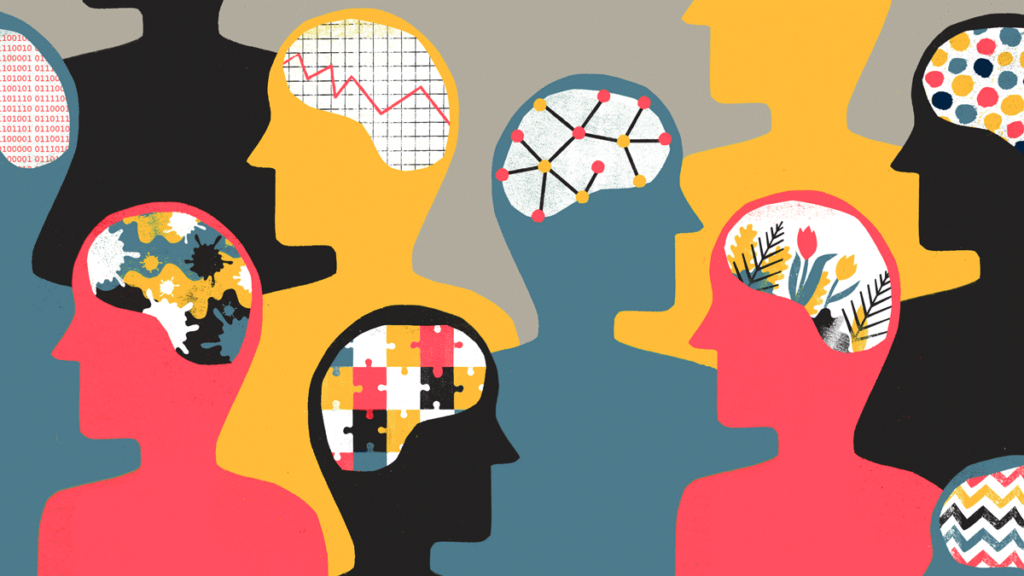Mental illness/ disorder is a term used to describe a wide range of mental health conditions. It can be difficult to understand what mental illness is and how it affects people’s lives.
This blog post will provide an overview of mental illness, including the different types, symptoms, causes, and treatment options. We will also hear from experts in the field and those living with mental illness about their experiences.
Contents
- 1 Understanding Mental Illness
- 2 Diagnosing Mental Illness
- 3 Living With Mental Illness
- 4 Ending Stigma of Mental Illness
- 5 Coping With Mental Illness
- 6 Treating Mental Illness
- 7 Talking To Professional
- 8 Finding Professional Help
- 9 Hearing From Mental Health Experts
- 10 Conclusion
- 11 A Word From Therapy Mantra
Understanding Mental Illness
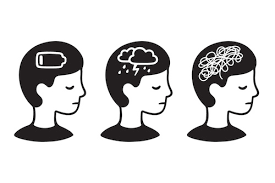
Mental illness/ disorder is a term used to describe a wide range of mental health conditions. These conditions can affect how people think, feel, and behave. Mental illness can impact all aspects of a person’s life, including their physical health, emotional well-being, relationships, and work-life.
Types of Mental Illness
There are many different types of mental illness/ disorder. Some of the most common conditions include:
Psychotic disorders: Psychotic disorders, such as schizophrenia, cause people to see, hear, or believe things that are not real. This can lead to difficulty distinguishing between what is reality and what is not.
Anxiety disorders: This type of mental illness is characterized by feelings of worry, nervousness, and fear. People with anxiety disorders may also experience physical symptoms such as sweating, rapid heart rate, and difficulty breathing.
Eating disorders: Eating disorders, such as anorexia nervosa and bulimia, involve distorted views of body image and food. People with eating disorders may severely restrict their food intake or engage in binge eating followed by purging (e.g., vomiting, using laxatives).
Mood disorders: Mood disorders, such as depression and bipolar disorder, involve changes in a person’s mood. People with depression may feel sad, hopeless, and worthless. People with bipolar disorder may have periods of mania ( feeling excessively happy or irritable) followed by periods of depression.
Depression: Depression is a common type of mental illness that is characterized by feelings of sadness, emptiness, and hopelessness. People with depression may also experience physical symptoms, such as changes in appetite and sleeping patterns, fatigue, and thoughts of suicide.
Symptoms of Mental Illness
Each mental illness/ disorder can present differently in different people. However, some common symptoms may indicate a person is experiencing a mental health condition.
Changes in behavior: People with mental illness may exhibit changes in their behavior, such as withdrawing from friends and family, engaging in risky behaviors, or increasing their use of alcohol or drugs.
Mood changes: People with mood disorders may experience changes in their mood that can be severe and last for long periods of time. These changes can include feeling excessively happy or irritable, feeling sad or hopeless, and having low energy levels.
Thoughts of suicide: Thoughts of suicide are common among people who are experiencing a mental health condition. If you are having thoughts of suicide, it is important to seek help from a mental health professional or crisis line immediately.
Changes in thinking: People with mental illness may experience changes in their thinking, such as having difficulty concentrating, making decisions, or remembering things. They may also have distorted thoughts about themselves, others, and the world around them.
Causes of Mental Illness
There is no one cause of mental illness/ disorder. Rather, it is thought that a variety of factors may contribute to its development. These factors can include:
Biological processes: Biological processes, such as changes in the brain structure or function, may also contribute to the development of mental illness.
Genetics: Mental illness may be passed down from generation to generation. This is because certain genes may increase a person’s risk for developing a mental health condition.
Environmental factors: Environmental factors, such as exposure to violence, trauma, or stress, may also contribute to the development of a mental health condition.
Risk Factors of Mental Illness
Several factors may increase a person’s risk of developing a mental health condition. Some of these risk factors include:
Using drugs or alcohol: Using drugs or alcohol can increase your risk of developing a mental health condition. As can using tobacco products.
Having a family history of mental illness: If someone in your family has been diagnosed with a mental illness, you are at an increased risk for also developing one.
Experiencing trauma or stress: Traumatic experiences, such as abuse, neglect, or the loss of a loved one, can increase your risk of developing a mental health condition.
Exposure to violence: Exposure to violence, whether it be through the media, in your community, or your personal life, can increase your risk of developing a mental health condition.
Having a chronic medical condition: People who have a chronic medical condition, such as diabetes or cancer, are at an increased risk for developing a mental health condition.
Diagnosing Mental Illness
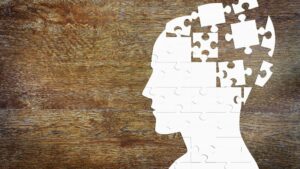
If you are experiencing symptoms that suggest you may be suffering from a mental illness/ disorder, it is important to see a mental health professional for diagnosis and treatment. A mental health professional can conduct a variety of tests and interviews to determine whether you have a mental illness and, if so, what type it is.
Professionals Who Diagnose Mental Illness
Mental health professionals who can diagnose mental illness/ disorder include:
Psychiatrists: A psychiatrist is a medical doctor who specializes in the diagnosis and treatment of mental illness.
Psychologists: A psychologist is a mental health professional who specializes in the assessment and treatment of mental illness.
Licensed counselors: A licensed counselor is a mental health professional who specializes in the diagnosis and treatment of mental illness.
Tests For Mental Illness Diagnosis
There are several tests that mental health professionals can use to diagnose mental illness/ disorder. These tests can include:
The Hamilton Depression Rating Scale (HDRS): The HDRS is a rating scale that is used to assess the severity of symptoms in people with depression.
The Yale-Brown Obsessive Compulsive Scale (Y-BOCS): The Y-BOCS is a rating scale that is used to assess the severity of symptoms in people with OCD.
Interviews For Mental Illness Diagnosis
In addition to tests, mental health professionals may also use interviews to diagnose mental illness/ disorder. These interviews can include:
The Diagnostic Interview Schedule for Children (DISC): The DISC is a diagnostic interview that is used to determine whether a child meets the criteria for a specific mental illness, such as ADHD or anxiety disorder.
The Kiddie Schedule for Affective Disorders and Schizophrenia (K-SADS): The K-SADS is an interview that is used to diagnose mental illness in children and adolescents.
The Schedule for Affective Disorders and Schizophrenia for School-Age Children (KSADS-PL): The KSADS-PL is an interview that is used to diagnose mental illness in children and adolescents.
The Clinical Interview for DSM-IV Axis I Disorders (CIDI): The CIDI is a clinical interview that is used to determine whether a person meets the criteria for a specific mental illness, such as depression or schizophrenia.
The Mini-International Neuropsychiatric Interview (MINI): The MINI is a diagnostic interview that is used to determine whether a person meets the criteria for a specific mental illness, such as depression or bipolar disorder.
Living With Mental Illness
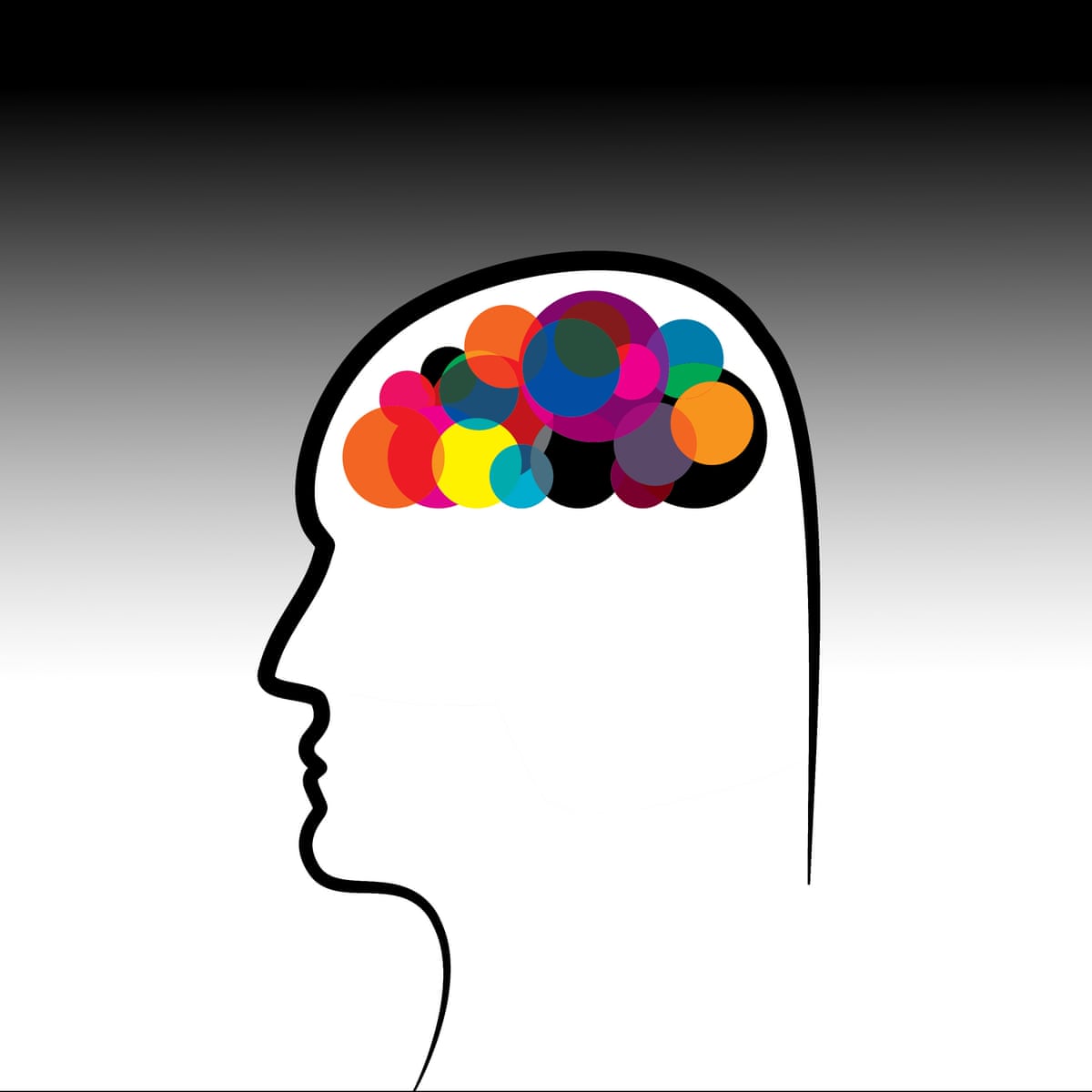
It can be difficult to live with a mental illness, especially if you do not have access to appropriate treatment. Here we will discuss how mental illness/ disorder impacts different areas of your life.
Impact on Mental Health
Mental illness can impact your mental health in several ways. It can cause you to feel anxious, depressed, or stressed. It can also make it difficult for you to concentrate or remember things. If left untreated, mental illness can lead to more serious problems. Such as suicidal thoughts or self-harm.
Impact on Physical Health
Mental illness can also impact your physical health. It can cause you to have trouble sleeping, eat poorly, or experience pain. If left untreated, mental illness can lead to serious medical problems. Such as heart disease, diabetes, and obesity.
Impact on Relationships
Mental illness can also impact your relationships. It can cause you to withdraw from friends and family. It can also make it difficult for you to maintain a healthy relationship. If left untreated, mental illness can lead to social isolation and loneliness.
Impact on Work
Mental illness can also impact your work. It can cause you to miss work, have difficulty concentrating, or make poor decisions. If left untreated, mental illness can lead to job loss and financial problems.
Impact on Social Life
Mental illness can also affect your social life. It can make it difficult for you to participate in social activities. It can also cause you to avoid social situations. If left untreated, mental illness can lead to a lack of social support.
Ending Stigma of Mental Illness

One of the biggest challenges facing people with mental illness/ disorder is the stigma that surrounds it. This stigma can make it difficult for people to seek help. It can also cause them to feel ashamed or embarrassed.
Ending the stigma of mental illness is essential if we want to improve the lives of those who are affected by it. If you know someone who is struggling with mental illness, there are a few things you can do to help:
- First, try to be understanding and supportive.
- Second, encourage them to seek professional help.
- Finally, offer to help them find resources or information about mental illness.
Mental illness is nothing to be ashamed of. It is a real and serious problem, and it deserves to be treated with the same respect as any other medical condition.
If you are struggling with a mental illness, please know that you are not alone. Some people care about you and want to help you get better.
You deserve to receive the best possible treatment, and there is no shame in seeking help. There is hope for recovery, and you can get better. Just keep fighting.
Resources
If you or someone you know has a mental illness/ disorder, there are resources available to help. Here are some organizations that can help:
Mental Health America (MHA): MHA is a nonprofit organization that provides information and resources about mental health.
The National Institute of Mental Health (NIMH): NIMH is a national institute that researches mental illness.
The American Psychiatric Association (APA): The APA is a professional organization that represents psychiatrists.
The Brain and Behavior Research Foundation (BBRF): BBRF is a nonprofit organization that funds research on mental illness.
The National Alliance on Mental Illness (NAMI): NAMI is a national organization that provides support and education for people with mental illness and their families.
SAMHSA’s National Helpline: SAMHSA’s National Helpline is a confidential, free, 24-hour-a-day, 365-day-a-year, information service that provides referrals to local treatment facilities, support groups, and community resources.
NOTE: If you or someone you know is in crisis, call the National Suicide Prevention Lifeline at 800-273-TALK (800-273-8225). Or go to the nearest hospital emergency room.
Coping With Mental Illness

There are several ways that you can cope with mental illness/ disorder. Here we will discuss some coping strategies that may be helpful for you.
Get Treatment: If you are experiencing symptoms of mental illness, it is important to get treatment. Treatment can help you manage your symptoms and improve your quality of life.
Join a Support Group: There are many support groups available for people with mental illness. These groups can provide you with emotional support and practical advice.
Talk to a Mental Health Professional: If you are struggling to cope with your mental illness, it may be helpful to talk to a mental health professional. This person can help you understand your diagnosis and develop a treatment plan.
Find a Supportive Friend or Family Member: It can be helpful to find a friend or family member who is supportive and understanding. This person can provide you with emotional support and help you through difficult times.
Self-help Tips
There are several things you can do to help yourself if you are struggling with mental illness/ disorder. Here are some self-help tips that may be helpful for you.
Educate Yourself About Mental Illness: It is important to educate yourself about mental illness. This will help you understand your diagnosis and treatment options.
Talk to Others Who Have Mental Illness: It can be helpful to talk to others who have a mental illness. This can help you feel less alone and give you practical advice.
Take Care of Yourself: It is important to take care of yourself if you have a mental illness. This means eating a healthy diet, exercising, getting enough sleep, and avoiding drugs and alcohol.
Self-help Techniques
There are several different self-help techniques that you can use to manage your mental illness. These techniques can help you feel better and improve your quality of life.
Mindfulness: Mindfulness is a technique that involves focusing on the present moment. This can help you stay in control of your thoughts and emotions.
Relaxation Techniques: Relaxation techniques can help you reduce stress and anxiety. These techniques include deep breathing, progressive muscle relaxation, and visualization.
- Visualization: Visualization is a technique that involves picturing yourself in a relaxing situation. This can help you reduce stress and anxiety.
- Deep Breathing: Deep breathing is a relaxation technique that involves taking slow, deep breaths. This can help you relax your body and mind.
- Progressive Muscle Relaxation: Progressive muscle relaxation is a technique that involves tensing and relaxing different muscle groups in your body. This can help you reduce stress and anxiety.
Self-help Tools
There are several self-help tools that you can use to help manage your mental illness/ disorder. Here we will discuss some of the most common self-help tools.
Mental Health Apps: There are many mental health apps available for smartphones and tablets. These apps can provide you with support and information about mental illness.
Online Forums: There are many online forums available for people with mental illness. These forums can provide you with support and information about mental illness.
Mental Health Websites: There are many mental health websites available. These websites can provide you with information about mental illness, treatment options, and support services.
Books on Mental Illness: There are many books on mental illness. These books can provide you with information about mental illness, treatment options, and coping strategies.
Movies and TV Shows About Mental Illness: There are many movies and TV shows that depict mental illness. These can be a great way to learn about mental illness and how it affects people’s lives.
Treating Mental Illness

There are several different treatments for mental illness/ disorder. The most common treatments are medication, therapy, and self-help techniques.
- Therapy: Therapy is another common treatment for mental illness. There are several different types of therapy available, such as cognitive-behavioral therapy and psychotherapy.
- Medication: Medication is often the first line of treatment for mental illness. There are several different medications available to treat mental illness.
Therapy
Therapy is often the first line of treatment for mental illness. These treatments can help you manage your condition and improve your quality of life.
Cognitive-behavioral Therapy: Cognitive-behavioral therapy is a type of therapy that helps you change the way you think and behave. This can help you manage your mental illness.
Psychotherapy: Psychotherapy is a type of therapy that helps you understand your thoughts and emotions. This can help you manage your mental illness.
Family Therapy: Family therapy is a type of therapy that involves your family. This can help you manage your mental illness and improve your relationships with your family members.
Group Therapy: Group therapy is a type of therapy that involves a group of people. This can help you manage your mental illness and connect with other people who have similar experiences.
Medication
There are several different medications available to treat mental illness. These medications can help you manage your condition. And they help improve your quality of life.
Stimulants: Stimulants are medications that are used to treat ADHD. They can help you focus and improve your attention span.
Antidepressants: Antidepressants are medications that are used to treat depression. They can help you feel better and improve your mood.
Anti-anxiety Medications: Anti-anxiety medications are medications that are used to treat anxiety. They can help you feel better and reduce your anxiety.
Antipsychotics: Antipsychotics are medications that are used to treat psychosis. They can help you feel better and reduce your hallucinations or delusions.
Talking To Professional
If you are struggling to manage your mental illness, it is important to talk to professional help. There are several reasons why you should seek professional help for your mental illness.
Professional help can provide you with the support and treatment that you need to manage your condition. They can also help you connect with other people who have similar experiences.
Types of Professionals
There are several different types of professionals who can help you with your mental illness. These professionals include psychiatrists, psychologists, and therapists.
Psychiatrist: A psychiatrist is a medical doctor who specializes in the diagnosis and treatment of mental illness.
Psychologist: A psychologist is a type of therapist who specializes in the study of human behavior.
Therapist: A therapist is a type of professional who helps people with their mental and emotional problems.
Case Study
Here is an example of how a therapist might help a person with mental illness.
A woman named Sarah comes to therapy because she is struggling with anxiety and depression. Her therapist asks her about her symptoms. And helps her understand why she is feeling this way.
The therapist also teaches Sarah some relaxation techniques that can help her manage her anxiety. The therapist also helps Sarah connect with other people who have similar experiences.
Finding Professional Help
If you are struggling to manage your mental illness, there are several places where you can find professional help. These places include your doctor, mental health clinics, and online resources.
Your Doctor: Your doctor can provide you with information about mental illness and refer you to a mental health professional.
Mental Health Clinic: Mental health clinics are places where you can go for treatment of mental illness.
Online Resources: Online resources, such as websites and online support groups, can provide you with information about mental illness and connect you with professionals who can help you.
Hearing From Mental Health Experts
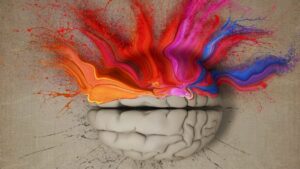
We talked to some mental health experts about the best ways to manage mental illness. Here is what they had to say.
“Self-care is essential when trying to manage mental illness. Make sure you are taking care of yourself both physically and emotionally.”
-Karen Young, therapist
“It is important to be patient with yourself when trying to manage mental illness. It takes time to find the right treatment plan and to see results.”
-Dr. Aarti Gupta, psychologist
“The most important thing for people with mental illness is to find a treatment plan that works for them and stick with it.”
-Dr. James Greenblatt, psychiatrist
“It is important to have a support system when trying to manage mental illness. Friends and family can be a great source of support.”
-Dr. James Greenblatt, psychiatrist
Neuroimaging For Mental Illness
In recent years, there has been a lot of progress in the field of neuroimaging mental illness. Neuroimaging is a process that uses imaging technology to study the structure and function of the brain.
This technology can be used to help diagnose mental illness and to track the effects of treatment. It can also be used to study the brain in people who have not been diagnosed with mental illness.
Neuroimaging can be used to study the brains of people with mental illness in several ways. One way is to look at the structure of the brain. Another way is to look at how the brain functions.
Functional neuroimaging can be used to study the activity of the brain in people with mental illness. This technology can be used to study the way the brain processes information, how it responds to stimuli, and how it communicates with other parts of the body.
Recent studies have shown that neuroimaging can be used to detect mental illness before symptoms appear. This could lead to earlier diagnosis and treatment of mental illness.
The Key Message
Neuroimaging is a promising tool for the study of mental illness. It has the potential to improve our understanding of mental illness. And to help people with mental illness get the treatment they need.
Brain Activity In Mental Illness
A recent study used functional neuroimaging to study the activity of the brains of people with mental illness. The study found that people with mental illness have different patterns of brain activity than people without mental illness.
The study found that people with mental illness have more activity in the areas of the brain that are involved in emotions and stress. They also have less activity in the areas of the brain that are involved in thinking and planning.
This study provides evidence that people with mental illness process information differently than people without mental illness. The findings could lead to new ways to diagnose and treat mental illness.
Movies and Books
There are many movies and books about mental illness. These stories can provide insight into the experience of living with a mental illness. Here we will discuss some of these movies and books.
The Madness of George III: This movie is about a man who experiences a mental breakdown and is struggling with bipolar disorder.
A Beautiful Mind: This movie is based on the true story of a mathematician who has schizophrenia.
The Bell Jar: This book is about a young woman who experiences a mental breakdown and is dealing with depression.
Girl, Interrupted: This movie is about a young woman who has borderline personality disorder.
The Perks of Being a Wallflower: This book is about a teenage boy who struggles with mental illness.
NOTE: If you or someone you know is struggling with mental illness, these stories can provide insight and understanding. These stories can also help to remind us that we are not alone in our experiences.
Conclusion
Mental illness is a complex and serious issue. There are many different types of mental illness. And each type can be difficult to manage. However, there are treatments available that can help people with mental illness live happy and healthy lives. If you or someone you know is struggling with mental illness, seek help from a mental health professional.
A Word From Therapy Mantra
Your mental health — Your psychological, emotional, and social well-being — has an impact on every aspect of your life. Positive mental health essentially allows you to effectively deal with life’s everyday challenges.
At TherapyMantra, we have a team of therapists who provide affordable online therapy to assist you with issues such as depression, anxiety, stress, workplace Issues, addiction, relationship, OCD, LGBTQ, and PTSD. You can book a free therapy or download our free Android or iOS app.
